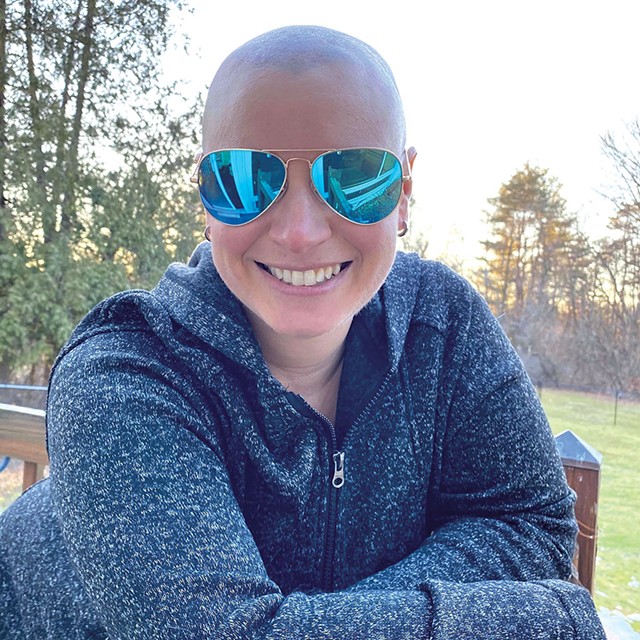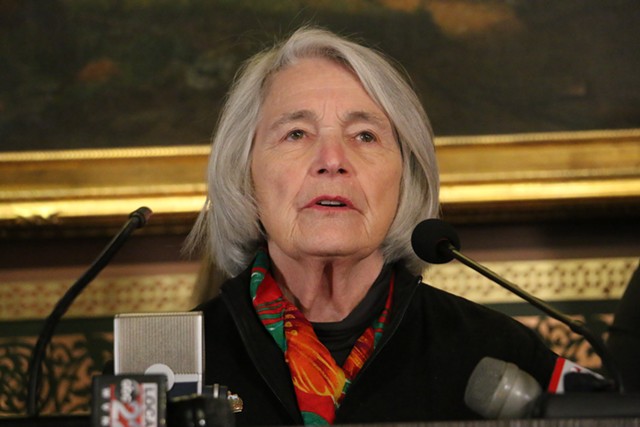click to enlarge 
- Courtesy
- Cassandra Johnston
Updated at 5:08 p.m.
The Vermont Senate has given final approval to a bill that would allow terminally ill
residents of other states to come to Vermont to end their lives.
The final passage of the bill on a voice vote on Wednesday means it now heads to Gov. Phil Scott, who has said he supports the measure. The House approved the measure in February.
Vermonters who are suffering and have less than six months to live have had the right to end their lives with prescription drugs for a decade
under Act 39. That care, often known as physician-assisted suicide but now referred to as medical aid in dying, is the only health care limited to state residents, noted Sen. Ginny Lyons (D-Chittenden-Southeast).
“There is certainly no justification to put a residency requirement on end-of-life care and to distinguish this care as something other than health care,” Lyons told her colleagues.
Cassandra Johnston, a 38-year-old emergency planning manager from Clifton Park, N.Y., said the vote gives her “great relief and peace of mind.” Johnston is undergoing chemotherapy for stage III breast cancer and wants the option to die on her terms if the treatment doesn't work. Such end-of-life care is not legal in New York.
“A huge thank you to the lawmakers and people of Vermont for taking this step to make sure that terminally ill people in states where medical aid in dying is denied will have this compassionate and peaceful end-of-life option,” she wrote in an email.
The proposed change encountered opposition from right-to-life advocates and Sen. Russ Ingalls (R-Essex), who unsuccessfully argued that the eligible age should be raised from 18 to 22.
Senate President Pro Tempore Phil Baruth (D/P-Chittenden-Central) reassured his colleagues that there was “an exhaustive process to be followed” for anyone who wants to use the law, whether a Vermont resident or a person from out of state.
click to enlarge 
- Kevin McCallum ©️ Seven Days
- Sen. Ginny Lyons (D-Chittenden-Southeast)
Lyons explained that a person must be at least 18 years old, have less than six months to live and not have impaired judgment. The person also has to make the request of a Vermont doctor twice, at least two weeks apart, in writing before two witnesses. A second consulting doctor must also confirm the patient’s terminal diagnosis, and the patient must be able to take the drugs themself. The decision can be reversed by the patient at any time, Lyons explained.
The bill follows a recent legal settlement
between Vermont and national advocacy group Compassion & Choices. The group sued the state last year on behalf of Lynda Bluestein, a cancer patient living in Bridgeport, Conn., and Diana Barnard, a University of Vermont Medical Center hospice doctor in Middlebury who also treats patients living in New York. The settlement required the state to not oppose a bill to remove the residency requirement.
























































